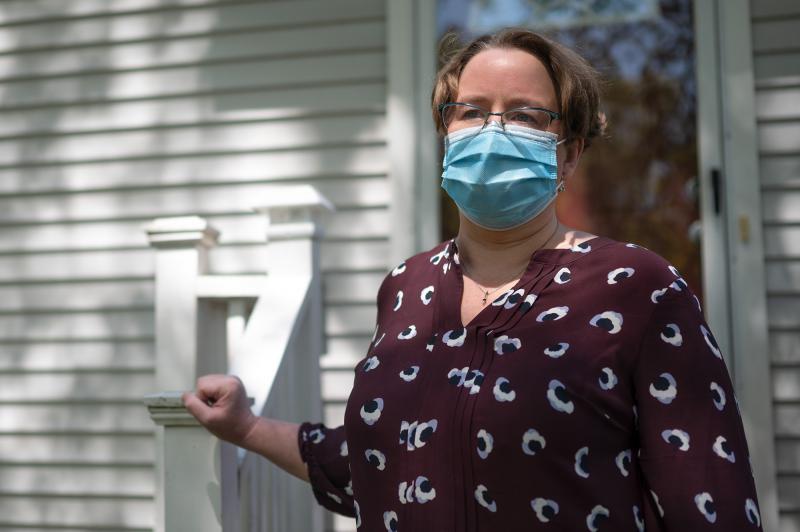Connecticut’s Reopening Presents New Challenges For Residents With Underlying Medical Conditions

Sarah Keitt, at her home in Fairfield, Conn., lives with multiple sclerosis and is on immunosuppressant medication, putting her among people with underlying medical conditions who are more at risk of falling severely ill with COVID-19. (Ryan Caron King/Connecticut Public)
Even before the stay-at-home orders were officially issued in late March, Sarah Keitt had begun a two-week period of quarantine in her Fairfield home, isolated from her husband and two children.
“It was lonely, it was painful to have basically no contact other than yelling up and down the stairs to people,” she said.
Keitt did it to make sure that nobody had brought the coronavirus into their home, because if they had, she might be at a higher risk of serious COVID-19 illness due to her multiple sclerosis, other chronic diseases, medications she takes and scarring on her lungs from previous blood clots.
And with the state resuming some business and community activities, she may have to do that again.
“That’s what it might have to come to for families like mine where one person is compromised, but everybody else has to get back to, you know, life as normal or as normal as it’s going to get,” she said.
Gov. Ned Lamont and the Reopen Connecticut Advisory Group have come up with specific ways in which restaurants, offices, retail stores and other business sectors can resume beginning May 20, after more than two months of strict stay-at-home orders.
Read the rest of this story at WNPR.org.
